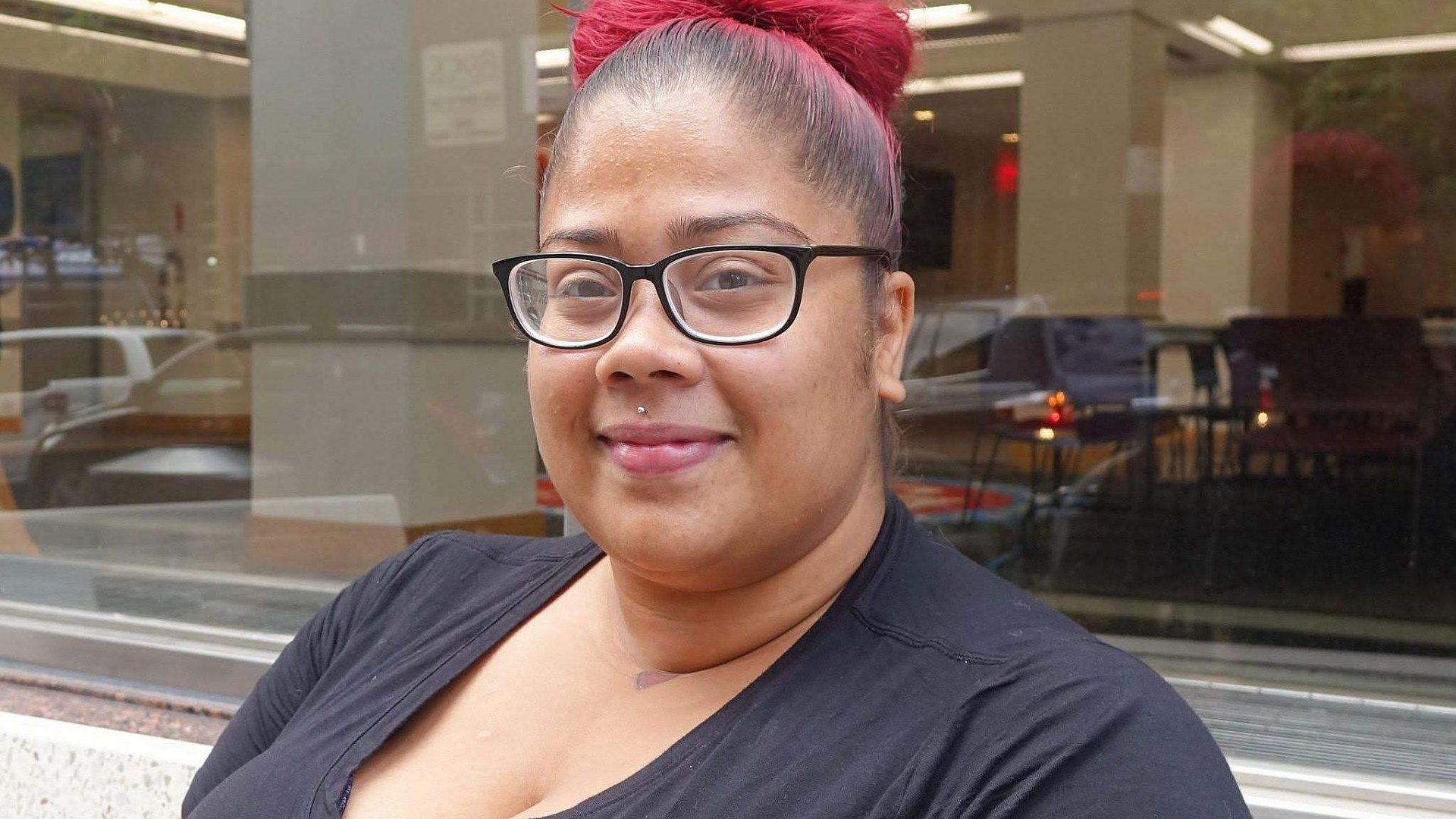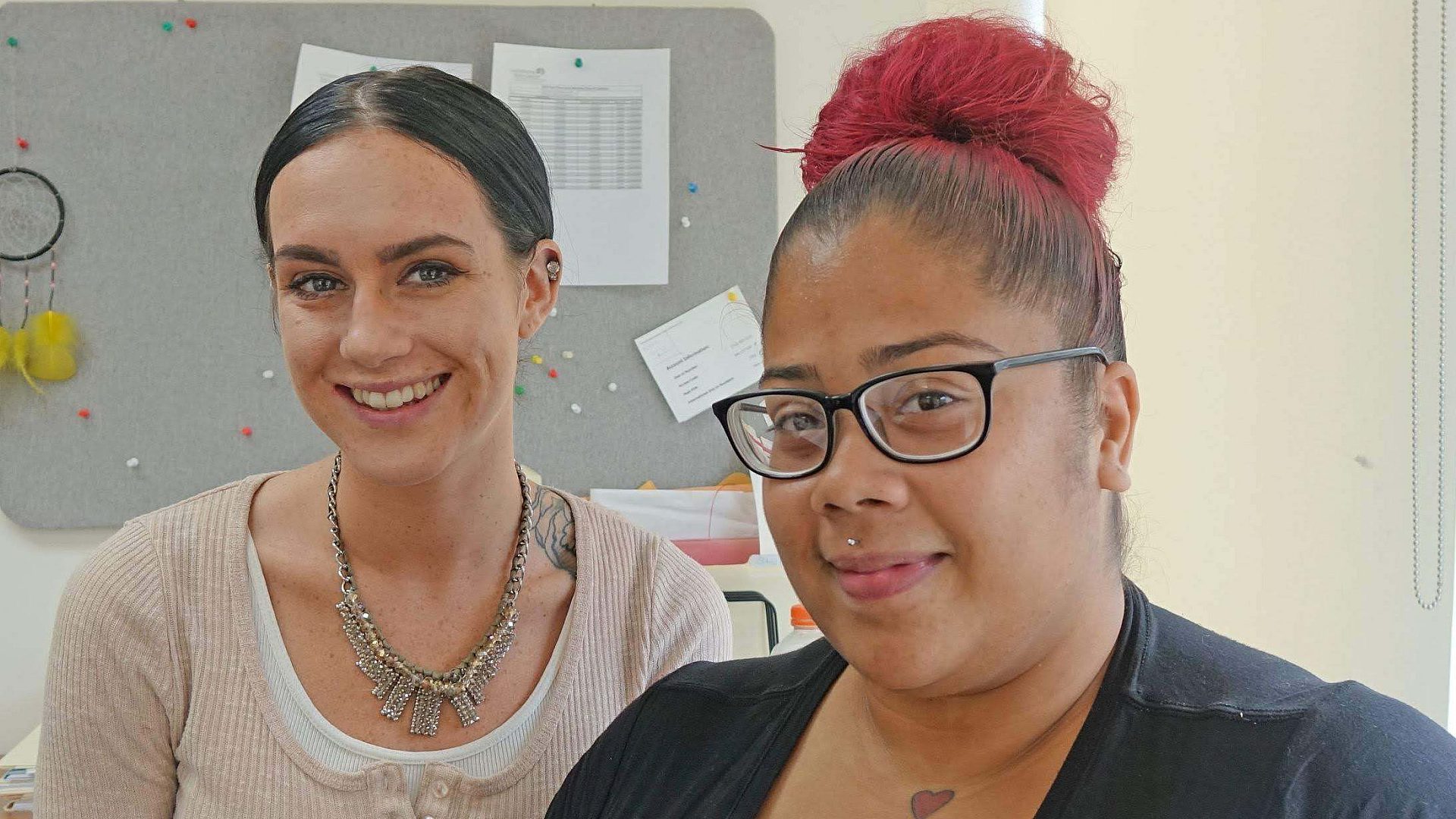Spotlight
Samantha Medrano's Journey
Samantha Medrano is a young mom who used Workforce programs to get work and most importantly, custody of her child.

“Even though I’ve been out for like five months now, I’m still trying to get to figure out everything. Mainly not being selfish and focusing on me.”
Samantha Medrano has her eyes fixed on the future -- one that includes a college degree, a fulfilling career as a youth counselor, and a stable home for her daughter. Since being released from Rikers last January after eight months of incarceration, the Brooklyn native has worked everyday to make these goals a reality.
“I was scared to go back to jail. I had just done eight months, so my first instinct was, ‘I’ve gotta get money,’ and I decided to do it legally this time,” Medrano said. “I didn’t want to risk my freedom, risk being away from my daughter, so I went to Osborne.”
When she was released seven months ago, Medrano found herself without a place to live, without a job, and without important documents like a government-issued ID or a Social Security card. With the help of organizations including Osborne, Medrano is staying in a shelter in Lower Manhattan and is now working in a full-time maintenance job.
Since coming to Osborne, Medrano has participated in the Jails to Jobs program with case managers Sarah Wise and Lamont Peyton—a team she says has become like family.
Through Jails to Jobs, Osborne and other non-profits in the city to provide short-term transitional employment to every individual leaving a city jail after serving a sentence.
“Samantha is really determined and motivated,” said Wise. “When she says she’s going to do something, she does it. She has a really good work ethic.”
In addition to securing necessities like housing and employment, Medrano has also faced a challenge familiar to many formerly incarcerated parents—reconnecting with her child after months of separation. Following Medrano’s arrest, her daughter spent a month in the care of the NYC Administration for Children’s Services before Medrano’s mother was granted temporary guardianship. Although Medrano missed her daughter constantly, she says she couldn’t bear the thought of the toddler seeing her in a jail.
“The day I came home was the most difficult day. I remember my mom holding her and I was excited to see her, but my daughter cried,” Medrano said. “She cried, she kept saying no. She didn’t want to be next to me. She didn’t want me to touch her or nothing, so it took a little while, I would say about two or three weeks, for her to come around.”
After eight months of having nothing but photos to see her toddler’s growth, Medrano says she finds joy in the everyday moments they get to spend together—whether it’s cleaning ice cream off the little girl’s uniform during outings to the park, catching her sneaking extra cookies after dinner, or tucking her into bed before returning to the shelter.
Although the two-year old continues to live with her grandmother for the time being, Medrano makes a point to visit her at least four or five times each week after work.

“Even though I’ve been out for like five months now, I’m still trying to get to figure out everything. Mainly not being selfish and focusing on me.” Medrano said. “Every day I just come out to be with my daughter, read, then go back to the shelter.”
Medrano, who previously attended Mercy College, plans to finish her associate degree in journalism so she can improve her communication skills and nurture her passion for writing. Ultimately, Medrano hopes to become a youth counselor to help young people who she believes might relate to her experiences.
“One day I want to tell my story because there’s a lot I’ve been through besides Rikers Island that I feel another person can connect to.” Medrano said. “There are a lot of unspoken things that maybe others have experienced as well and to carry that burden is tough. So maybe if just one person could use their voice, I could get other people to talk, too.”
“I would definitely tell [returning citizens] to have a goal and do what’s necessary in a positive way to achieve that goal,” Medrano said. “You can’t think of the right-now, you have to think of the future and anything is possible. I would definitely tell them to come to Osborne. I’ve brought a few people here. I would definitely tell them that nobody is against you. People are here for you, even if you feel like you’re by yourself.”